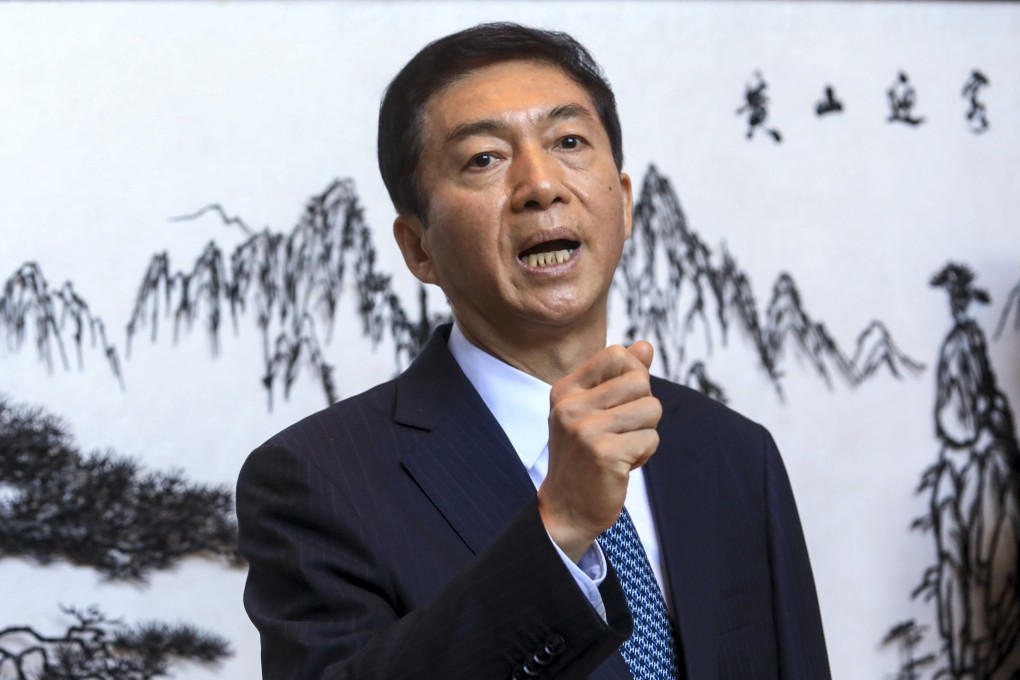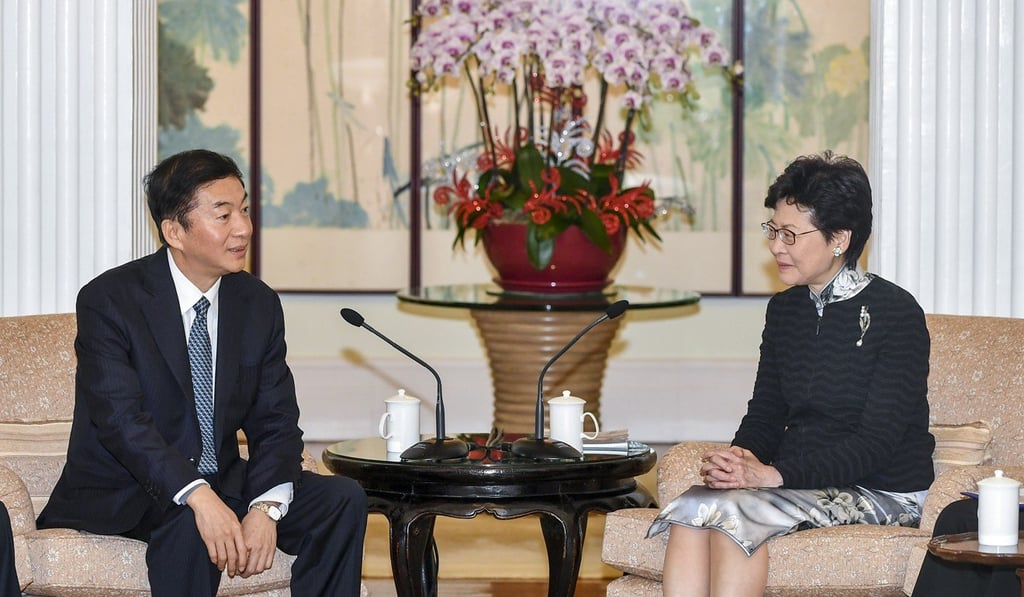China’s new top official in Hong Kong hopes city can return to normal, and says ‘one country, two systems’ must be implemented in long-term
- Luo Huining starts first day on job and says he will do his best ‘with a sincere affection for Hong Kong’
- Luo calls the civil unrest worrying and hopes city can get ‘back on track’

Luo Huining was speaking to the media on Monday on his first day as director of the central government’s liaison office in the city, after replacing Wang Zhimin, who was in the post for two years and three months following his appointment in September 2017.
Despite having no experience in Hong Kong affairs, Luo, former party leader of Shanxi province, said the city was “no stranger” to him. “I will do my best in the job with a sincere affection towards Hong Kong,” he said.
The reshuffle, announced on Saturday, is the first major leadership change since the ongoing protests broke out in June, sparked by the now-withdrawn extradition bill.

Luo, who has reached the retirement age of 65, took up the role a week after he was named deputy director of the financial and economic affairs committee of the National People’s Congress (NPC) – a position usually reserved for retired officials.